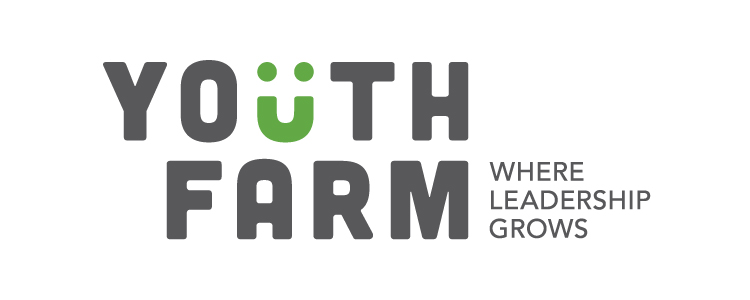Our Programs
 Annually, Youth Farm engages over 1,500 youth in growing season programming, school year programming, and community events.
Annually, Youth Farm engages over 1,500 youth in growing season programming, school year programming, and community events.
Growing Season Programming
As urban farmers, the growing season is a busy time for us. It may seem early, but our growing season truly starts at the end of January when youth involved in our school partnership work seed thousands of plant starts in our St. Paul greenhouse. After plant starts are distributed to gardens, youth take on an active role in planting, managing, and monitoring garden spaces throughout the entire season, truly tending to plants from seed to plate. During the growing season, youth are also involved in cooking classes, volunteer farm work days, and community events. As the growing season comes to a close, youth make decisions surrounding responsible distribution efforts while also preserving produce to be used for cooking classes during the colder months.
School Year Programming
During the school year, youth participate in farm classes, cooking classes, and community meals along with in school and after school greenhouse, hoophouse, and gardening classes. Strong school year programs and community involvement opportunities through food-based work are key elements to Youth Farm’s success. During the school year, our planning and community organizing work happens in a way that allows for true success during the growing season.
Community Events
In addition to greenhouse, gardening, and cooking programming, we also involve our youth in community events such as fairs, farmers markets, and community meals. Some recent events we have co-hosted include Let the Water Speak at the Story Garden, the Frogtown Green Sustainability Circus, and the Playing for the Plants garden music series. Each year we engage about 900 youth and 1,100 adults in our work at community events. When participating in events, youth are offered real world planning and engagement opportunities as well as an introduction to the community as leaders in the local food movement.
Youth Farm Age Groups
Our youth development curriculum is based on a progressive program model. Children as young as nine participate and may continue to be involved until they are 24 years old. As youth “age” with Youth Farm, the curriculum changes and they find increasingly challenging and age-appropriate opportunities for growth and leadership.
The stages of our progressive program model include:
Youth Farmers (9-11 years old): In both summer and school year programming, Youth Farmers focus on interpersonal skills development while mastering gardening and cooking skills. Youth Farmers learn about how food choices impact their lives.
All Stars (12-13 years old): All Stars incorporate intentional, specific program and neighborhood leadership roles while focusing on role modeling and cultural responsiveness skills. All Stars learn about food systems, taking responsibility to distribute food in each neighborhood.
Project LEAD (14-18 years old): part-time hourly employment & leadership training
- Project LEAD take on the role of managing programming for Youth Farmers and All Stars and assisting on farm sites with farm design, planting and seeding, weeding, harvesting, and food distribution. They also participate in community events and learn to use food as a tool to engage their peers, residents of all ages, and community partners.
- Project LEAD develop mentorship, conflict resolution, leadership, community organizing, and work skills through all of their community-based projects.
Farm Stewards (19-24 years old): part-time hourly employment & leadership training
- Farm Stewards track and manage overall farm plans while also serving as mentors to Project LEAD.
- Farm Stewards are tasked with developing and nurturing community partnerships to implement Youth Farm programming with the goal of developing strong skills surrounding careers and workforce, leadership, management, social change, community organizing, and youth development.
- Youth Farm has designed the Farm Stewards program to emphasize a more personal and flexible approach to leadership development. We aim to include Farm Stewards at different stages of their personal, educational, and professional development, including those pursuing a long term career in youth work, higher education students earning credit through their Farm Steward position, and young adults exploring a specific area of Youth Farm’s work in farming, community organizing, fundraising, nonprofit management, etc.
